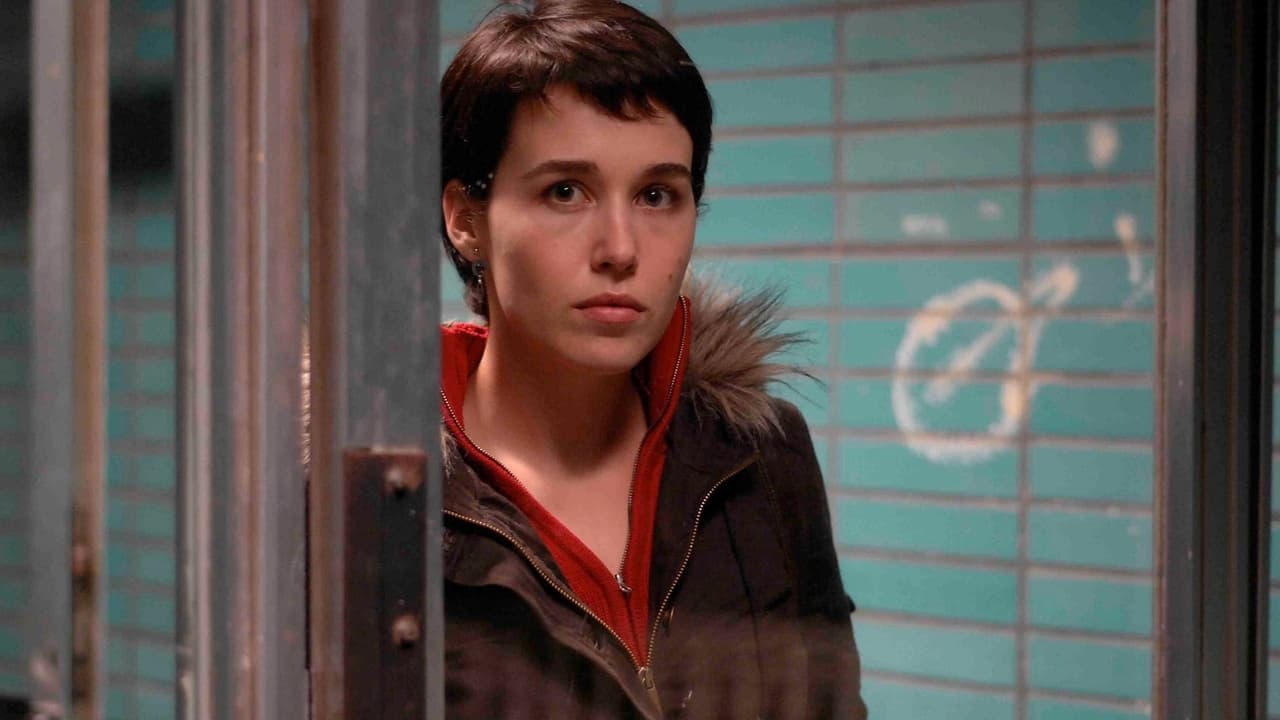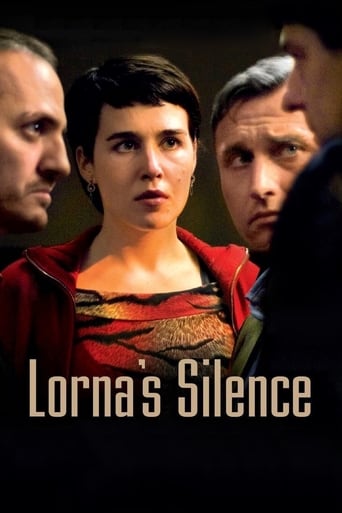Scanialara
You won't be disappointed!
Beystiman
It's fun, it's light, [but] it has a hard time when its tries to get heavy.
Janae Milner
Easily the biggest piece of Right wing non sense propaganda I ever saw.
Sarita Rafferty
There are moments that feel comical, some horrific, and some downright inspiring but the tonal shifts hardly matter as the end results come to a film that's perfect for this time.
blandiefam
To see the movement in this film , you become a part of it's pace. It's smoky cold feel of the spaces explored in this film allows you to immerse yourself into the the whole international thing. Being an American I tend to love the patience taken in these French films. They are woven and character developments take more value than just a get to the point story with a predictable ending. As usual in French movies, symbolism takes precedence over story. Still, reality is quite evident in the grim concepts displayed. Being of first generation immigrants,I can identify with the premise and the desperation involved. The lead character is brilliant in the way she gives less yet give so much in her subtle expressions. The direction is superb and the storyline leaves you wanting more. Many directors with this consistent success may often relax in their past laurels but the careful development of the pace of this murky tale is quite endearing.I would strongly recommend this movie for those who are plain cinema lovers.
morninglory2504
Very minor spoiler ahead: Monumentally depressing. It was a great movie, really effective. You really get to care about the key characters which is why it's so heart-wrenching by the end. Very well-done. It was superbly acted, especially the female lead. She was very good. She could convey so much without delivering a single line. I would definitely look for other movies she was in. Not to mention the actor who played her husband. But still... I wish i hadn't watched it at all. SUCH a downer. If you want to feel moody and depressed, definitely give this a watch. If you want a happy ending? Do yourself a favor, go watch Who Framed Roger Rabbit or something.
johnnyboyz
When we first see the protagonist of 2008 Belgian film The Silence of Lorna, they are flitting around the general area in which they habit; darting from the shops, back through the streets and then home again to an unwelcoming and droll apartment. Their partner is home, smoking and listening to loud rock music. The partner apologises and tells the lead that they'll stop going out and doing what it is they're doing, an exchange that we feel may have just played out for the umpteenth time. The home quarters are colourless and drab, the walls undecorated and furniture sparse – perhaps they've just moved in, perhaps they're really poor or maybe something more sinister is going on. We wonder what the ragged looking partner does that forces them to be as apologetic as they are, the suggestion that they play a friendly game of cards together might itself suggest a gambling problem; the manner in which the partner is shot, that is to say from behind, gets across a sense of anonymity or alienation about them on first sighting, particularly in regards to how the character feels towards them. Very quickly, the Dardenne brothers Jean-Pierre and Luc have caught us up in the world of these people through their realist style and wonderful techniques; a sensation that does not abate until the very end.The lead is the titular Lorna (Dobroshi), a young woman; an Albanian immigrant living illegally within the Belgian city of Leige and in a false, loveless marriage to the aforementioned partner who's named Claudy (Renier). Lorna's a simple enough girl with relatively attainable aspirations although living amidst a complicated scheme, her tone quiet; her dress sense normalised and in Kosovo born actress Arta Dobroshi, an uncomplicated; unspectacular; unknown acting quantity whom carries a close to all but innocent expression on her face throughout as grins at the situation she's in and bears it. Lorna already has a partner away from Claudy whom is also Albanian, a man named Sokol (Ukaj), and has her eye on a disused structure sitting idly on a plot of land that she one day hopes to turn into a snack bar-come-restaurant with him so as to bring in the cash. Her confidant is a local gangster with broader connections to a Russian criminal organisation; somebody we feel she'd have absolutely nothing to do with ordinarily – a cab driver named Fabio (Rongione) whom is able to access her the necessary items needed to live in Belgium out from under this shroud of seediness and falsity.The film is a wonderful, involving mediation on the morality that comes with most of the actions, reactions and scenarios of what Lorna is facing within the film. Living with a man as unappealing as she does; using somebody else for her own gain and breaking international rules so as to be in a designated place are crimes she has either committed or is on the way to committing before the film has even begun. Complications that arise later on with the organisation of somebody's death stretch the band a tad too much for poor Lorna, and it's then she realises the trouble her actions have put both her, and those around her, in. The Dardenne's balance this agonising central character study and the torn morals that come with it with the back-burning gangsters whom oppose Lorna's anti cut-throat ideas of divorce because they incur police involvement. The result is a beautifully crafted and solid piece of drama that's gripping from its humble beginnings right through to its terrifying finale.By day, Lorna works in a laundromat steaming sheets and pressing clothes and so forth. The job entails pressing out and washing out both the grime and creases from numerous sheets which come in, something that echos what she has going on in her private life as her very soul begins to collect the grime and the creases that come with operating within the world she's operating and dealing with the people she's dealing. The grime threatens to reach a breaking point, so much so that a ploy to organise a case of faux-domestic abuse involving Claudy may just be enough to at least save his life as the Russians plan to simply have him overdose; a death which is clearly a step too far from Lorna's perspective and something far too weighty for her conscience to take.The film is a quietly murky piece, and it's this event which does so well in capturing this overlying canopy. Lorna and Claudy being forced by way of the state of desperation they're in to forge a domestic abuse scenario in which one is the victim and one the aggressor. The agonising planning of this event; the excruciating practising of it that must be completed prior to the execution proper and then the fallout which unfolds as a result of it are individual instances that manifest because of what these desperate characters have got themselves involved in. This being a film about process, about processes and the tortuous carrying out of a number of procedures so as to hopefully spawn a fresher, more hopeful dawn is captured wonderfully by the two sibling directors. There's a coldness to proceedings, a detached sense of everybody within the film not liking one another at all although never daring to actually admit it with the long takes that're applied handled expertly: the emotions of pain; frustration; anger and weakness which begins to manifest within numerous characters gradually rearing themselves on the faces within. The film is a brilliant character study, an unnerving thriller and a quite brilliant piece.
lastliberal
Dry cleaner by day, and bride by night, Lorna (Arta Dobroshi) makes a whole lot more turning over husbands who want to live in Belgium.Her current husband, Claudy (Jeremie Renier) is a drug addict. The marriage was arranged by Fabio (Fabrizio Rongione), a real low life. She needs to get out of this marriage to marry a Russian who wants residence. Fabio will take care of that.In the meantime, she and her boyfriend Sokol (Alban Ukaj) are saving money and making plans to open a sandwich shop. She hopes the next marriage is the last and she will be free.Jeremie Renier plays a very good role. He wants to quit, but his incessant needs wear Lorna down.Arta Dobroshi is excellent. She is being used by Fabio just because she is a woman. He is only interested in money.Lorna is a victim of circumstances, and definitely a survivor.A great character driven film.

